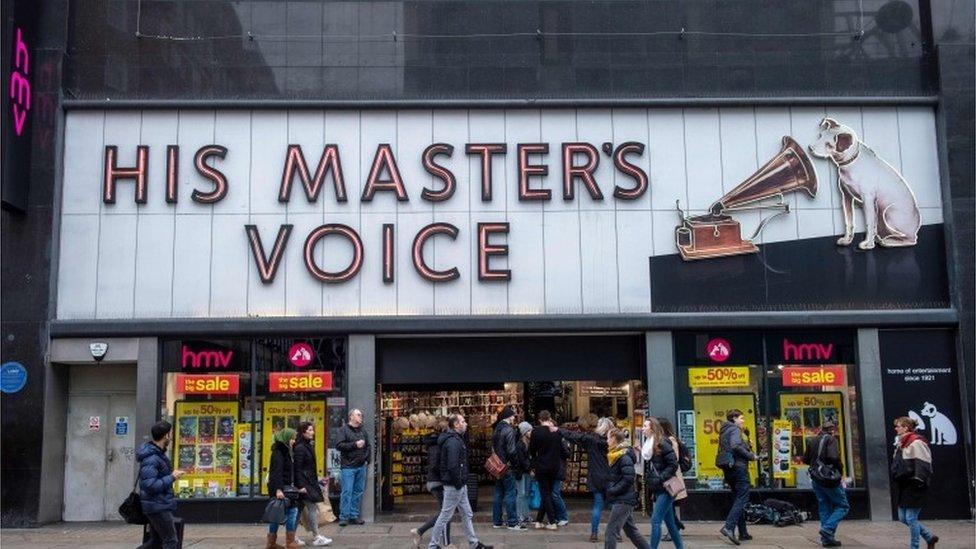Can anyone make HMV successful?
- Published
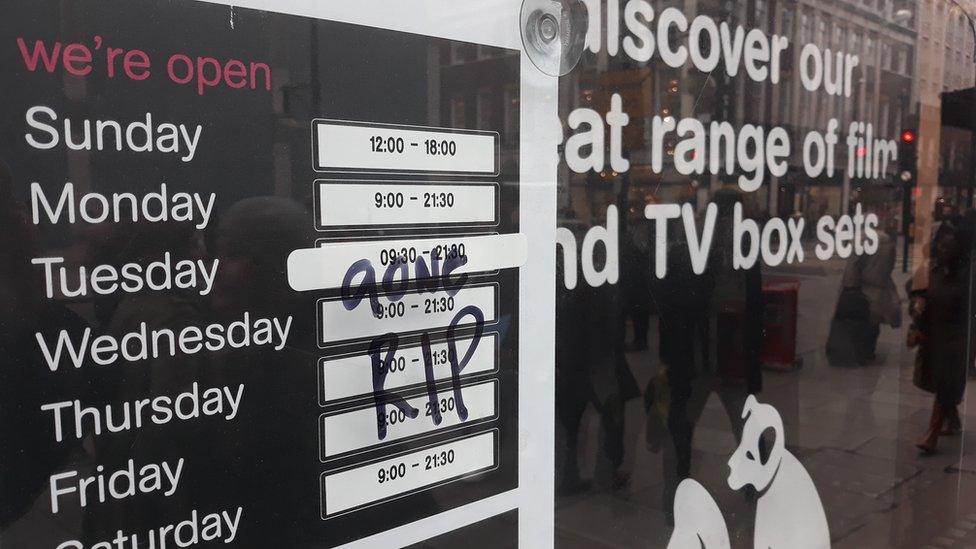
The HMV store on Oxford Street was the first to open in 1921
HMV has been snatched from the jaws of administration for the second time in less than a decade.
New owner Doug Putman plans to shut 27 stores, and continue to trade out of 100.
The very first HMV store on London's Oxford Street will be one of those to go.
It opened nearly a century ago in 1921 - but just how likely is it that the remaining stores will survive for another 100 years?
Here's a round up of some experts' views.
Richard Hyman, retail analyst
"Has this Canadian chap got a magic wand? I think it's going to be very difficult to carve a viable business," says retail analyst Richard Hyman.
"I think it's great that jobs have been reprieved, but I wouldn't be very confident about the length of time that may last.
"When you want to buy a Charlotte Bronte novel, a Shostakovich piece, or Cinema Paradiso they are going to be the same wherever you buy them from."
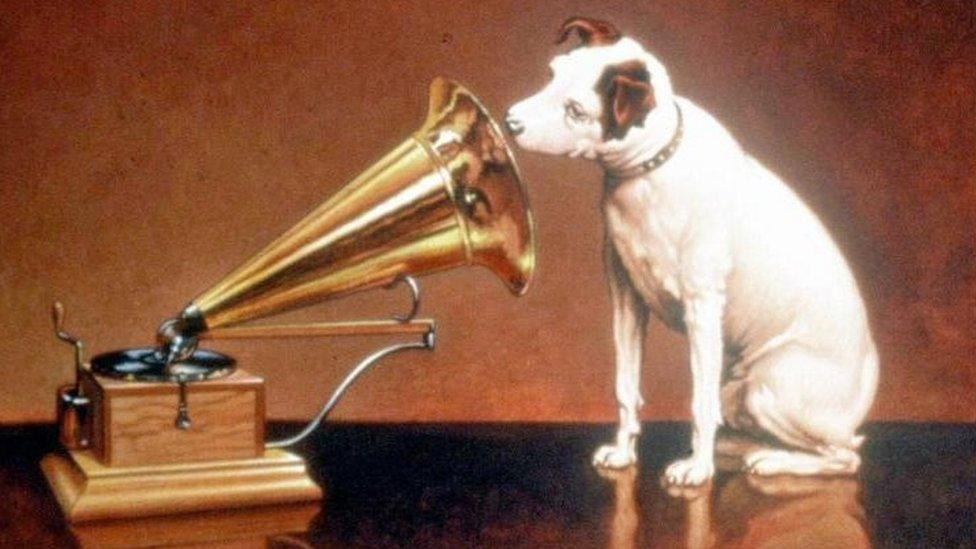
The original logo for His Master's Voice, inspired by a painting of Nipper the Dog
He reckons a key problem is that certain retailers simply don't have a unique product. Performers aren't going to record for just one retail outlet, but with fashion and furnishing and food retailers can have their own label.
"If you're selling something which is unique you've got something to defend there".
He added: "It's really, really difficult to make money - the economic model of retailing is under unprecedented challenge. In order to make money you have to add value - adding value to a product that is made by somebody else is really difficulty because where can you differentiate yourself?
"With HMV it's easy to say they should have been bigger online much sooner, but would they actually have been able to win a war with Amazon? I don't think so. There are some markets that are just so compatible with online retailing that it makes it very difficult to have economically viable retail stores.
"The overwhelming problem is they're not generating enough sales revenue. It's not about onerous costs. Those are very common words to be bandied about by management teams. but onerous leases weren't onerous when they signed up to them - otherwise why did they sign?"
Mark Mulligan, music industry analyst Midia Research
"The entire marketplace for physical music is dying - the majority of people who buy physical media are getting old. The customer base is dying," says Mark Mulligan.
He says younger people tend to stream music, and whilst some older people also get their music in a digital format, many still buy physical music.
However, the rate of decline is accelerating.
"CD sales in the UK declined by a fifth last year. And that is a market that has been declining in double digits for a decade or more," he observes.
Mr Mulligan compares what has happened to HMV with what has happened to the newspaper industry. Older customers have tended to stick with print versions, while a new generation has turned to online news.
But a huge factor for HMV in the challenge to make the big switch to digital streaming is that Amazon, Spotify and Apple have already got there before them.
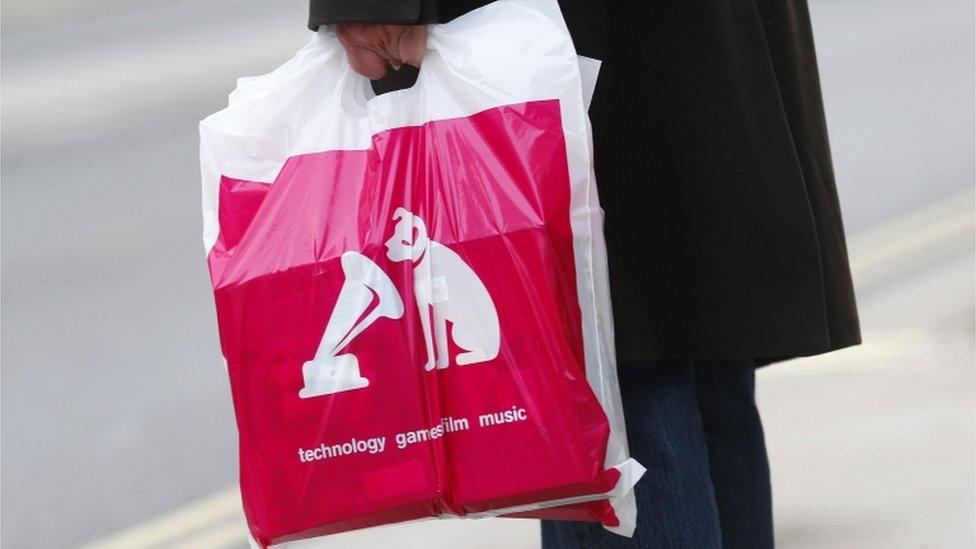
Amazon has other advantages, for example it knows a lot about its customers who buy CDs and they can try to sell them other services, such as Amazon Prime.
HMV don't have that knowledge about its shoppers, because the "relationship starts and ends at the cash till," he says.
Mr Mulligan thinks HMV's traditional business could be part of a "sunsetting" strategy. Over the next few years there could still be enough people of a certain age to buy CDs and DVDs to squeeze revenue out of the business.
But it means that every year the business would have to be scaled down because its revenues were falling.
However, he says HMV has "still got a very strong brand", which could be used to build a new generation of entertainment store.
For example, he says HMV in Canada is successful in TV merchandising and "fandom - items like Game of Thrones T-shirts, for example."
Switching business focus is something Apple, formerly a computer company, and Nokia, formerly a wellington boot company, have done very successfully.
Alice Enders, head of research at Enders Analysis
HMV is "a well known brand, it's a beacon destination, but there's a reliance on physical format," says Alice Enders.
"There's a rump demand for HMV's merchandise from some customers and Christmas demand, but this year's Christmas was very disappointing,"
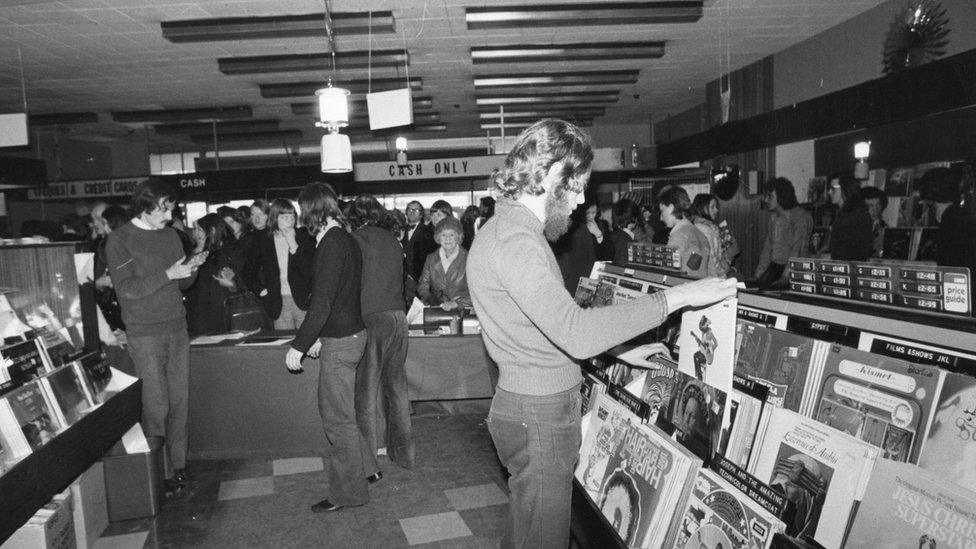
Shoppers browsing and buying in HMV in 1976
She suggests one option for HMV in the future might be pop-up shops to hit the key demand points at the likes of Christmas, or for it to concentrate on niche markets in selling vinyl, for example.
However, she adds: "There's no way that the direction is up, with all due respect. The real issue is that the bulk of music consumption is digital."
She too points to the popularity of merchandising. Concert-goers are more likely to buy a T-shirt than music, she says.
- Published5 February 2019
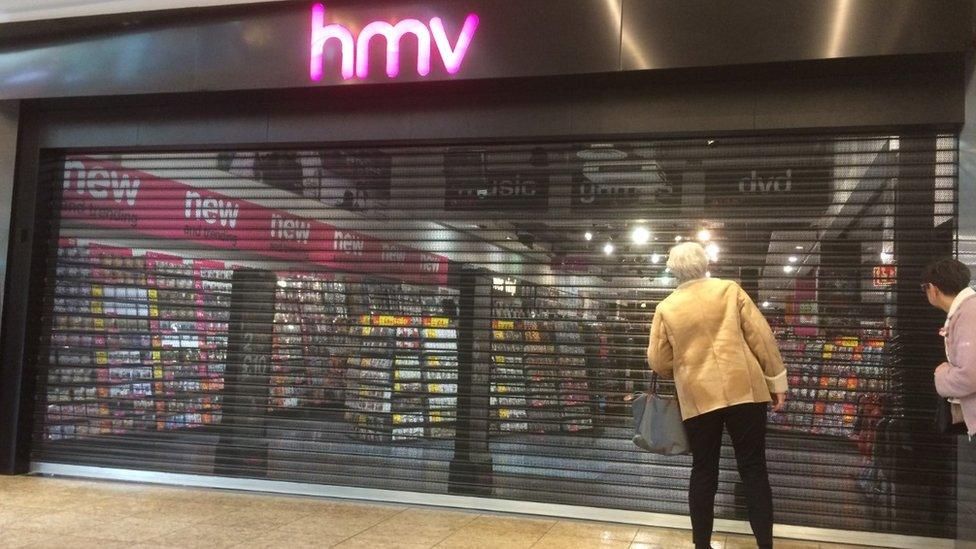
- Published3 February 2019

- Published28 December 2018
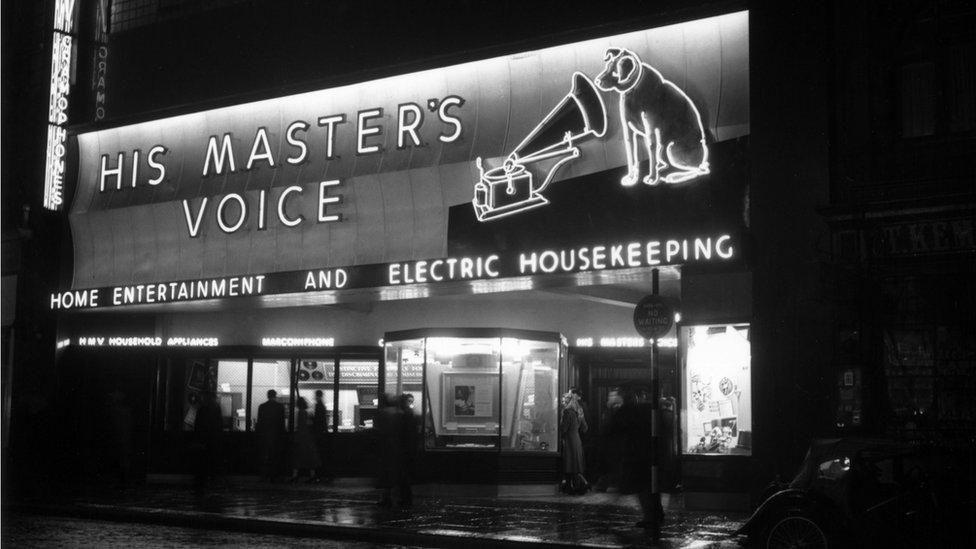
- Published3 January 2019

- Published28 December 2018
